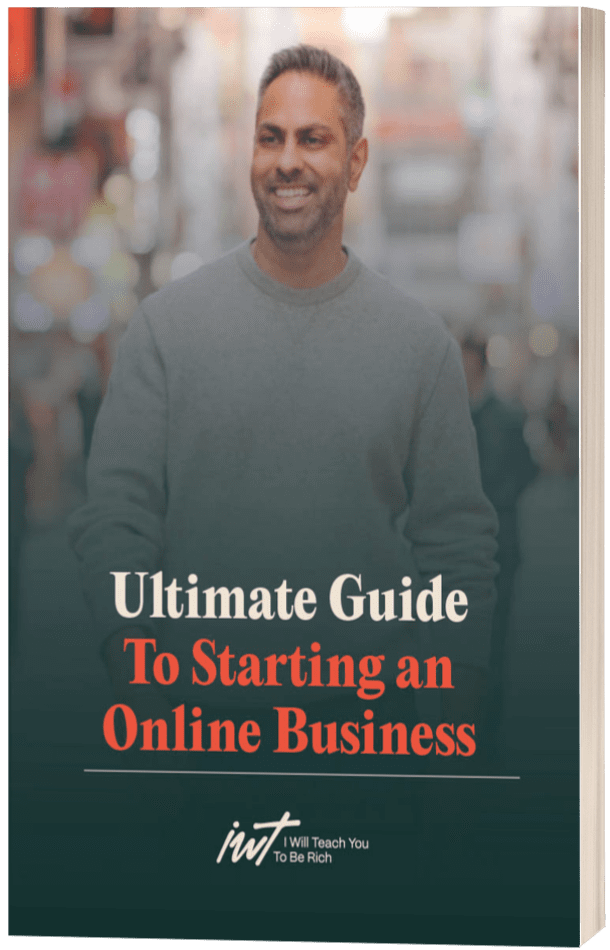Looking for inspiration that could spark your million-dollar business idea? In this post, we’re diving into eight unique business ideas that grew into multi-million dollar enterprises that are still around today!
Some of these successful businesses started with concepts you’d least expect to succeed, meaning regular people like us can identify other future million-dollar opportunities too.
Unique Business Idea #1: Museum Hack
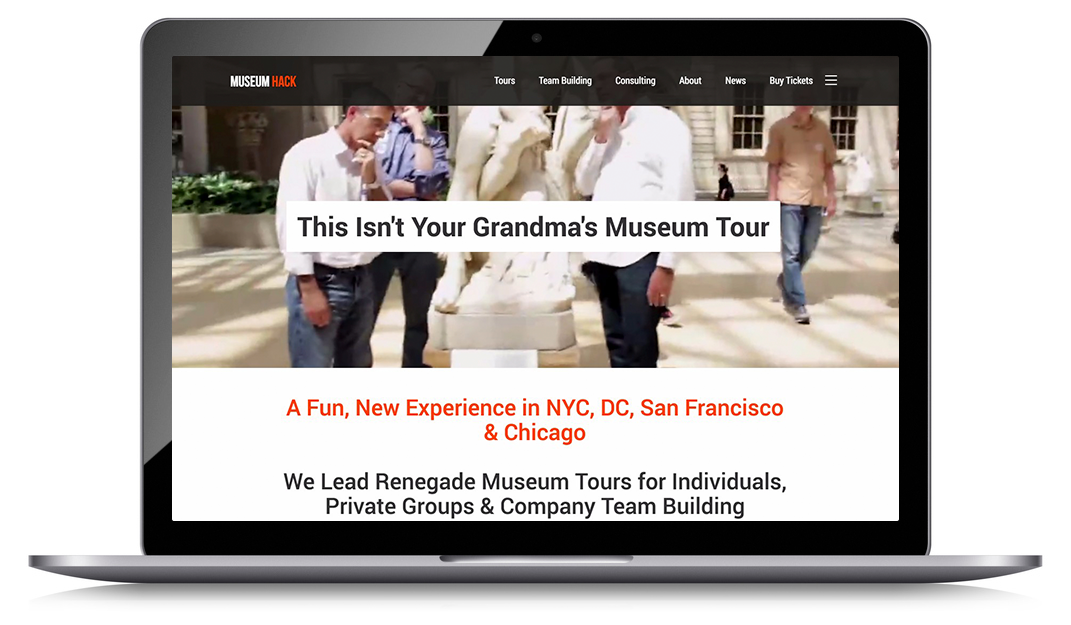
After falling in love with The Met in New York City, Nick Gray started offering free tours to his friends, showing them his favorite pieces and telling cool stories about the museum and artworks. Gray’s tours eventually spread by word-of-mouth, and he started hosting weekend events and even birthday parties at the museum.
Gray wrote a blog post about his tours, and he immediately saw the demand flood in — thousands of people emailing him and wanting to join his events. That’s when he launched Museum Hack, the antidote to boring and stuffy museum tours. You know, the ones you associate with school field trips and monotone voices.
Gray’s tours focused on lesser-known paintings and artists with interesting backstories, and quickly gained popularity after being featured in the Daily Candy newsletter. To scale the business, Gray hired stand-up comedians and actors as tour guides, believing their skills would make each tour fun and engaging.
By 2019, Museum Hack had expanded to five cities with 50 employees and was generating $2.8 million in revenue. However, Gray wanted to step back from the operational side of the business. In 2020, he sold Museum Hack to the leadership team of Tasia Duske (CEO) and Michael Alexis (Director of Marketing) for a 7-figure sum.
The sale was structured as a payment plan over 3-5 years, with Gray retaining a 15% equity stake. Unfortunately, the COVID-19 pandemic hit shortly after, forcing museum closures and disrupting Museum Hack’s business model. The company quickly pivoted to offering virtual team-building events.
As of 2024, Duske and Alexis continue to run Museum Hack and the parent company, while Gray has sold his remaining equity stake and is no longer involved
The takeaway: Aim for the golden goose
Museum Hack fits right in the sweet spot of the demand matrix. That is, the “Golden Goose” section, with many customers and high-priced services.

Think about it: Gray could’ve written a coffee table book about his museum tours and anecdotes. But that might’ve landed in the “Labor of Love” section, with few customers. Instead, he went right for the Golden Goose, launching a variety of in-person tours for high-paying corporate groups and parties.
Starting a new business doesn’t have to be daunting, I’ve helped thousands of people build their own businesses and you can do the same by watching the video below!
Unique Business idea #2: Dollar Shave Club
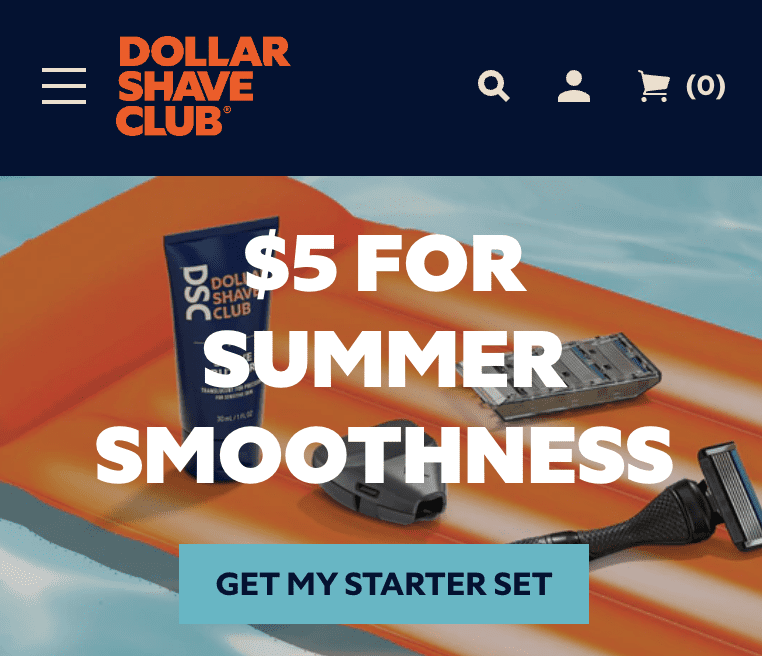
Launched in 2011 by Michael Dubin and Mark Levine, Dollar Shave Club revolutionized the razor market with its subscription-based delivery service. The company’s genesis came from Dubin’s frustration with the high cost and inconvenience of buying razors at stores.
Dollar Shave Club’s business model was simple yet disruptive: offer affordable razors and grooming products directly to customers on a subscription basis. This approach provided both convenience and affordability, which strongly resonated with consumers tired of expensive brand-name razors.
The company’s breakthrough came with its now-famous launch video, “Our Blades Are F***ing Great,” which went viral in March 2012. The video, featuring Dubin himself, cost only $4,500 to produce but garnered over 26 million views. This humorous and irreverent approach to marketing became a hallmark of the brand, helping it stand out in a traditionally staid industry.
Dollar Shave Club’s success wasn’t just about clever marketing. The company focused on building a strong community around its brand. They engaged users through social media and encouraged user-generated content, creating a loyal customer base that felt connected to the brand’s identity.
As the company grew, it expanded its product line beyond razors to include skincare, hair care, and personal grooming items. This diversification strategy helped increase customer lifetime value and solidified Dollar Shave Club’s position as a comprehensive men’s grooming brand.
The company’s rapid growth and market disruption caught the attention of industry giants. In July 2016, consumer goods conglomerate Unilever acquired Dollar Shave Club for $1 billion in cash. At the time of acquisition, Dollar Shave Club had 3.2 million members and was projected to hit $240 million in revenue for that year.
The takeaway: Dollar Shave Club’s success demonstrates the power of combining viral marketing, subscription-based models, and product diversification to achieve substantial business growth and market impact. By identifying a pain point in the market (expensive, inconvenient razor purchases), creating a solution (affordable subscription service), and marketing it in a memorable way, Dollar Shave Club was able to disrupt an established industry and build a billion-dollar brand in just five years.
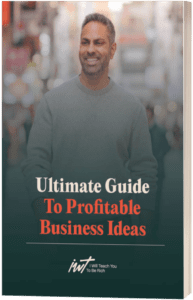
It’s one of the best things I’ve published (and 100% free), just tell me where to send it:
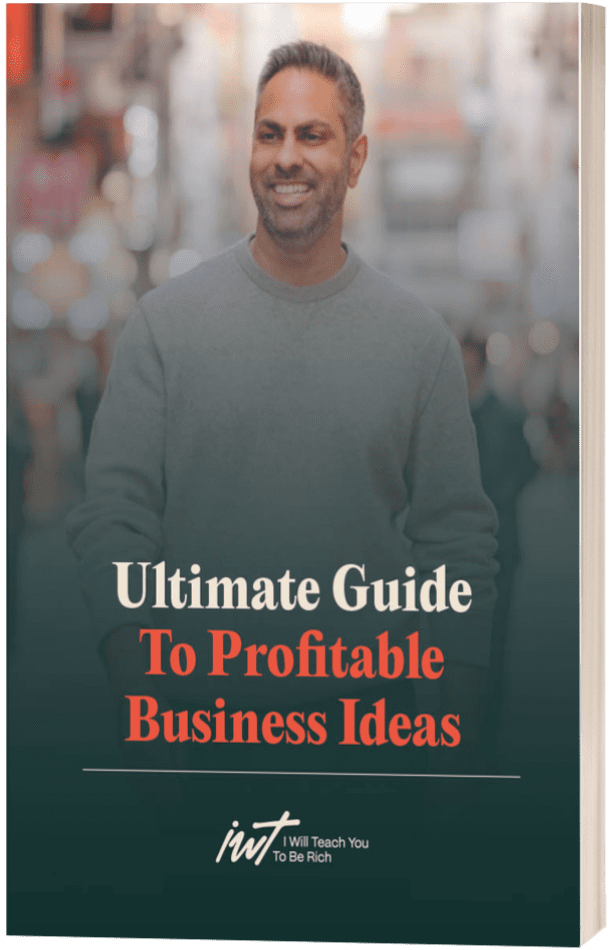
Unique Business Idea #3: Cards Against Humanity
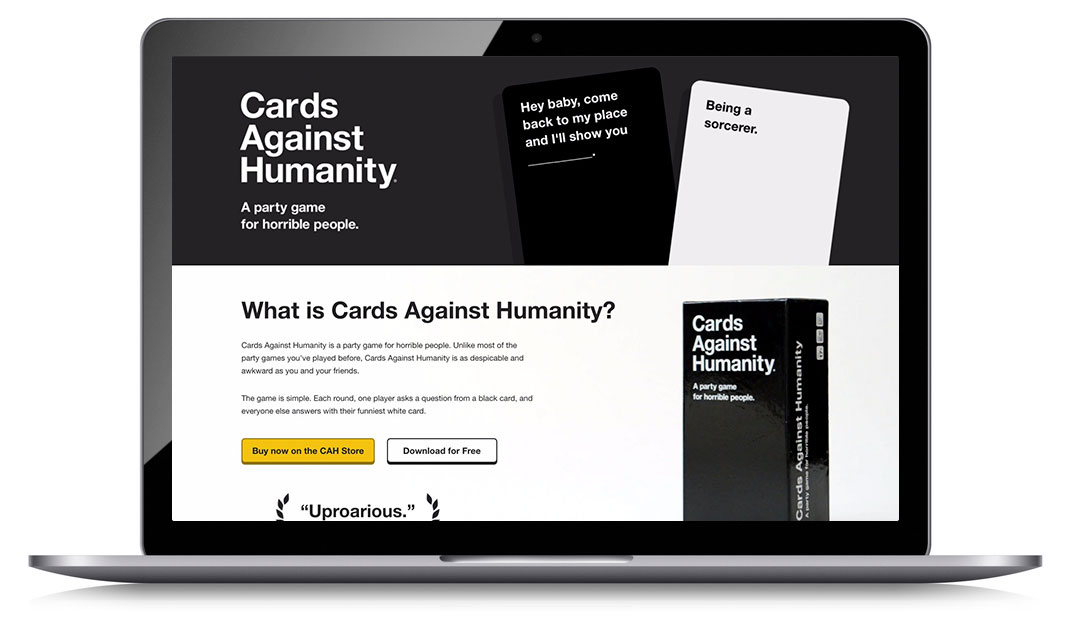
Cards Against Humanity is anti-establishment in every way — including its business model.
Known as “a party game for horrible people,” it was created by a group of high school friends who liked to make up their own games for fun. Once they realized other people were interested in this particular game, they put it online for free under the Creative Commons license.
Money didn’t even come into play until two years later, when they launched a Kickstarter campaign to print a physical pack. With a goal of only $4,000, Cards Against Humanity ended up raising $15,000. And in just two years, the game became a multi-million dollar business that generated $12 million in revenue, even though it remains available for free as a PDF download to this day.

“We have not really opted in to the traditional publishing system for games or anything else,” co-creator Max Temkin told The Blueprint. “We’re doing this really weird model where we own all of our IP, and we make everything ourselves, and we sell it directly to the customer.”
This intimate setup has allowed the creators to remain 100% in control of the branding. That means they can choose how to scale their business to make billions and pull crazy stunts like selling boxes of cow poop on Black Friday.
The takeaway: Start with something you’re passionate and knowledgeable about. If you’re not sure where to start when brainstorming your ideas, begin with what you do for fun, what you love to research, or what you usually help other people with. That might be coming up with games to play, giving tips on how to stay in shape, or polishing people’s resumes.
Some simple questions you can use to find a profitable business idea:
- What do your friends complain about that you find effortless?
- What do your friends say you’re great at?
- What do your friends say when they introduce you?
- What would you do if you had 3 hours free every week?
Notice how much these questions are about your friends, your hobbies, and your passions. Those were exactly the ingredients that gave life to Cards Against Humanity, as strange as the original idea was initially.
This business proves that no idea is too strange, as long as you can find demand for it. When the co-creators first came up with the concept, they never imagined they’d turn it into a multimillion-dollar business and a household name. But once they saw people flocking to their fresh and fun new game, they knew there was room to grow and ultimately profit.
Building your wealth doesn’t have to be complicated. Here’s my 5 step checklist to getting rich in 2024:

It’s one of the best things I’ve published (and 100% free), just tell me where to send it:

Unique Business Idea #4: Squatty Potty
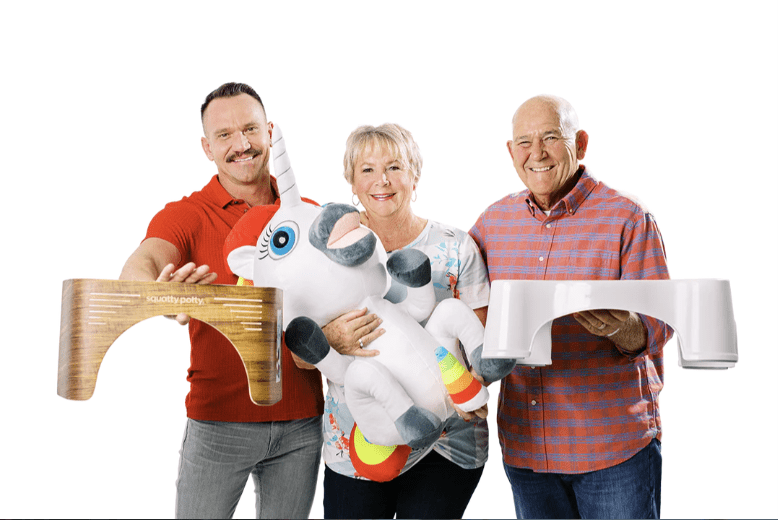
The Squatty Potty was created by the Edwards family in St. George, Utah. Judy Edwards, who struggled with constipation and hemorrhoids, received advice from a therapist that squatting could help by relaxing the colon. However, she found squatting on a typical Western toilet to be uncomfortable and awkward.
Her son, Bobby Edwards, a designer and contractor, saw the potential to redesign a standard step stool to achieve the ideal height and width for squatting over the toilet. He built several prototypes in their garage until he found one that worked effectively. The Edwards family began giving the device as gifts, and the positive feedback encouraged Bobby to launch a website and start selling the “Squatty Potty” online in 2011.
The Squatty Potty quickly became a hit, with the business grossing over $1 million in its first year. The company’s growth was further boosted by its appearance on “Shark Tank,” as well as a viral video featuring a unicorn with rainbow-colored ice cream, Today, the Squatty Potty is a popular bathroom accessory designed to improve digestive health by promoting a more natural squatting position for bowel movements.
Riding on the wave of their initial success, Squatty Potty didn’t rest on their laurels. They expanded their product line beyond the original toilet stool, developing a range of bathroom accessories and related items. This diversification allowed them to capture a larger market share and establish themselves as a comprehensive bathroom health brand.
The takeaway: The Edwards family identified an everyday problem they faced themselves, created a simple solution, and then marketed it in a way that grabbed attention and overcame societal taboos. By combining innovation with clever marketing and a willingness to expand their product range, Squatty Potty transformed a single, quirky idea into a thriving business worth millions.
In the world of unique business ideas, Squatty Potty stands out as a shining example of how thinking outside the box – even in the most unexpected areas of daily life – can lead to remarkable success.
Unique Business Idea #5: Airbnb
Airbnb was founded in 2007 by Brian Chesky, Joe Gebbia, and Nathan Blecharczyk. The idea for Airbnb originated when Chesky and Gebbia, two unemployed art school graduates, were struggling to pay their rent in San Francisco. They decided to rent out air mattresses in their apartment to make extra money during a design conference, which was causing a shortage of hotel rooms. This initial concept evolved into a bed and breakfast service, which they named AirBed & Breakfast.
In February 2008, Nathan Blecharczyk, a former roommate of Chesky, joined the venture as the chief technology officer. The trio launched the website Airbedandbreakfast.com on August 11, 2008, offering short-term living quarters and breakfast to travelers who could not find hotel accommodations.
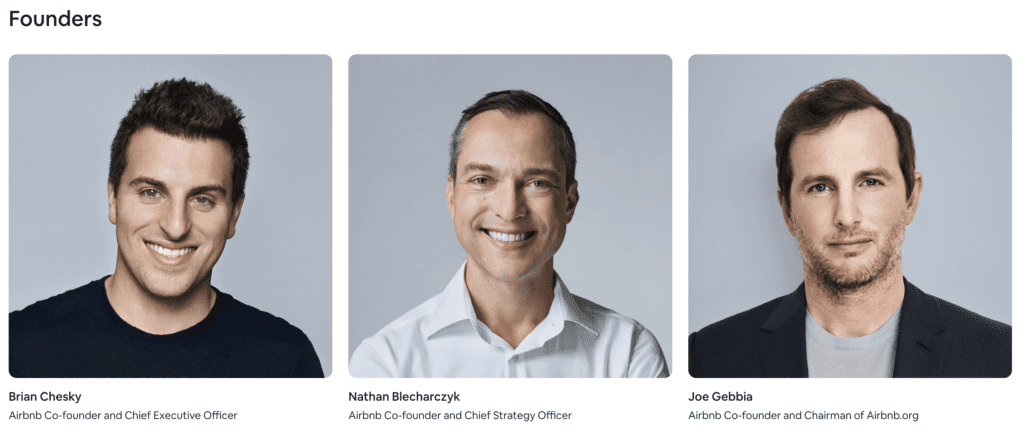
To raise funds, the founders sold limited-edition cereal boxes featuring the faces of Barack Obama and John McCain, which they marketed at the 2008 Democratic National Convention. This initiative raised $30,000, which they used to attend the Y Combinator startup incubator in January 2009. Y Combinator provided them with $20,000 in funding and training, which helped them refine their business model and attract more users.
In March 2009, the company shortened its name to Airbnb.com to eliminate confusion over air mattresses. By then, listings included entire rooms and properties. The company continued to grow, expanding its services and receiving significant investments from various venture capital firms, including Sequoia Capital and Andreessen Horowitz.
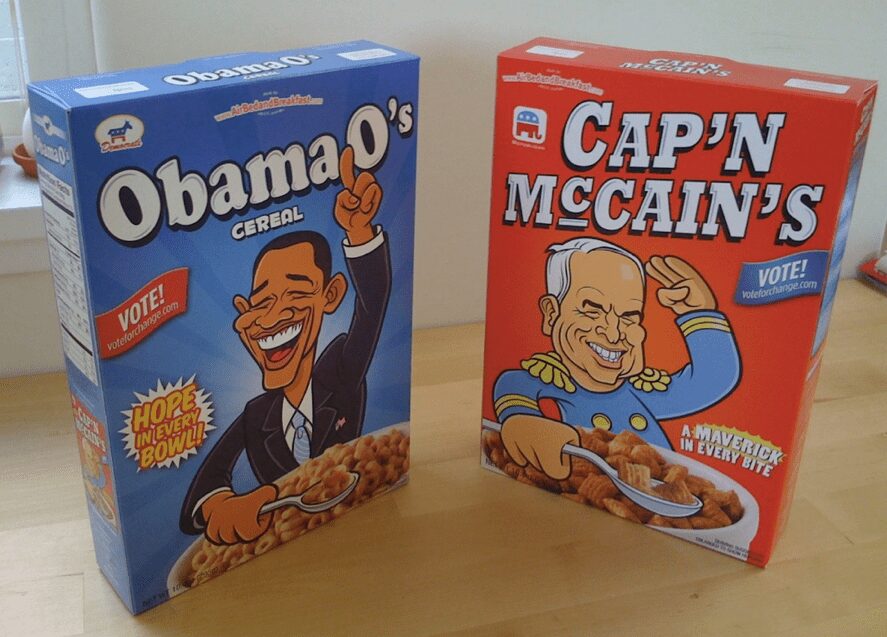
From these humble beginnings, Airbnb has expanded at a breathtaking pace. As of 2024, the platform boasts over 4 million hosts worldwide, offering unique stays in everything from treehouses and houseboats to luxury villas and urban apartments. This vast network has allowed travelers to find accommodations in places where traditional hotels don’t exist, opening up new destinations and travel experiences.
However, Airbnb’s journey hasn’t been without challenges. In its early days, the concept faced significant skepticism. Many doubted that people would be willing to stay in strangers’ homes or that homeowners would open their doors to unknown guests. The company had to work hard to build trust and create systems to ensure safety and reliability for both hosts and guests.
Regulatory hurdles have also been a constant battle for Airbnb. As the platform grew, it faced pushback from the hotel industry and local governments concerned about issues like tax collection, housing market impacts, and zoning laws. Airbnb has had to navigate a complex landscape of varying regulations across different cities and countries, often working to change laws to accommodate their new model of hospitality.
Despite these challenges, Airbnb’s growth story is nothing short of remarkable. The company went public in 2020, and its resilience was tested during the global pandemic. While travel initially plummeted, Airbnb adapted by focusing on local and long-term stays, emerging stronger as travel rebounded.
The takeaway: Airbnb’s success lies in its ability to tap into changing consumer preferences. It offered authenticity and unique experiences at a time when travelers were seeking more than just a place to sleep. The platform also empowered individuals to monetize their extra space, creating a new category of micro-entrepreneurs.
The Airbnb story teaches us valuable lessons about innovation and perseverance. It shows how a simple solution to a personal problem can evolve into a global business that reshapes an entire industry. By staying true to their vision of belonging and connection, while continuously adapting to challenges, Airbnb has not just created a successful company, but has changed the way we think about travel and hospitality
Enjoying this post? Watch me react to some viral finance TikToks to see how many of them hold true!
Unique Business Idea #6: Spanx
At 27 years old, Sara Blakely was annoyed with the old-fashioned pantyhose she wore every day to work. They were uncomfortable on her feet, but she liked the control-top. So, one day, she cut off the bottom of the pantyhose and wore them underneath her pants for a slimming effect. That’s when she realized she’d created a garment that hadn’t existed yet, and that there might be more women who wanted it in their wardrobe.
Two years later, Blakely launched Spanx. She did it with $5,000 in savings, a self-made patent for $150, and no formal knowledge about fashion, design, or retail. But through her own research and networking, she was able to land a deal with Neiman Marcus, get featured on Oprah, and host regular segments on QVC.
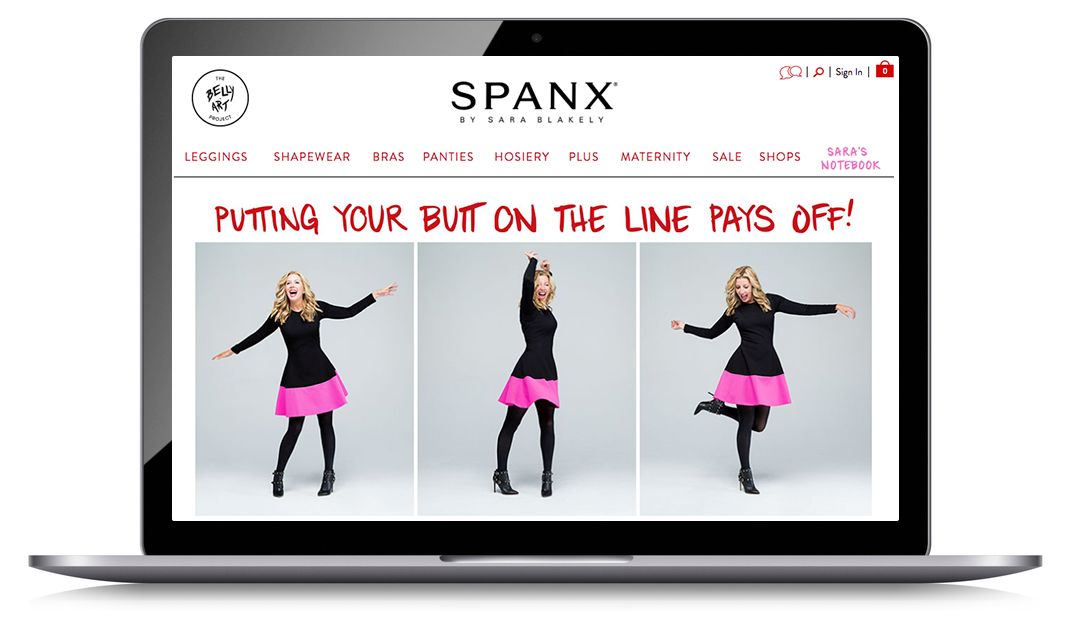
Spanx is now a billion-dollar business, and in 2012, at 41 years old, Blakely became the youngest woman to join the Forbes World’s Billionaires list.
The takeaway: Put a new spin on an old solution
When Blakely set out to manufacture her prototype, she realized that the entire undergarments industry actually needed to be refreshed. It was largely run by men, and new products were tested on mannequins instead of real people.
As she told Inc., “It dawned on me that maybe that’s why our pantyhose had been so uncomfortable for so long because the people making them aren’t wearing them.”
She saw an immediate need for a female perspective, and she was going to be the one to provide it.
When looking for business ideas, ask yourself:
- Is there an established industry or product that is outdated?
- Can I think of an innovative way to offer a new solution?
- What makes me uniquely qualified to provide this solution?
If you can’t answer these questions right away, start by researching an industry or field you’re passionate about (or even annoyed by!). Like Blakely, you might find an opening where your voice is needed (and where multi-million dollar business ideas lay hidden).
Unique Business Idea #7: Calm (Meditation App)
Calm is a popular mental health and wellness app founded by Michael Acton Smith and Alex Tew. It is the #1 app for sleep, meditation, and relaxation with over 150 million downloads and 2.5 million 5-star reviews.

Calm’s mission is to support everyone on every step of their mental health journey. The app offers a wide range of features to help users manage stress, sleep better, and live happier and healthier lives. This includes:
- Meditations for various themes like anxiety, sleep, focus, and gratitude
- Over 250 Sleep Stories to help users fall asleep
- Soothing music and soundscapes
- Breathing exercises and other tools for immediate stress relief
What sets Calm apart is its ability to make meditation and mindfulness accessible to everyone, not just seasoned practitioners. By breaking down these practices into digestible, user-friendly formats, Calm has helped demystify meditation and bring it into the mainstream.
Calm has been recognized as Apple’s 2017 App of the Year, Apple BEST OF 2018 award winner, one of Fast Company’s 2020 Most Innovative Companies, and Time100’s 2022 Most Influential Companies. It is available on iOS, Android, web, Apple TV, Apple Watch, Amazon Alexa, Google Home, and other platforms.
Have you read my NYT Bestselling book yet? If not, watch this 10 minute summary while you’re here!
The company’s success story is nothing short of remarkable. In 2019, Calm became the first mental health-focused startup to achieve unicorn status, reaching a $1 billion valuation. This milestone not only validated Calm’s business model but also highlighted the growing importance of mental wellness in the tech industry and society at large.
The app’s success reflects a growing interest in mental well-being and mindfulness, especially during the pandemic. While meditation apps can provide relief, some argue they may not address deeper societal issues contributing to stress and anxiety. Nevertheless, Calm continues to grow, valued at $2 billion, and now produces various products and services aimed at promoting relaxation in everyday life
The takeaway: Identify a universal need, create a simple solution, and scale it through multiple channels. Calm capitalized on the growing awareness of mental health and stress management, offering an accessible solution through technology. By diversifying revenue streams and adapting to user needs, they transformed a simple concept into a billion-dollar business.
Unique Business Idea #8: Rent the Chicken

When Jenn and Phil Tompkins started Rent The Chicken in 2013, they never imagined their quirky idea would hatch into a thriving business. What began as a part-time venture to earn supplemental income has since grown into a full-fledged enterprise, spreading its wings across the United States and Canada.
Rent The Chicken offers a unique solution for urban dwellers and sustainability enthusiasts: the chance to experience farm-fresh eggs without the long-term commitment of chicken ownership. The company provides customers with a portable chicken coop, two to four egg-laying hens, feed, and comprehensive care instructions. After enjoying fresh eggs for a season, customers can then decide whether to keep their feathered friends or return them.
But Rent The Chicken isn’t just about Homestead Phil & Jenn building coops and delivering chickens. They’ve transformed their idea into a network of opportunities, partnering with farmers and homesteaders who offer Rent The Chicken as an extension of their own farms. This innovative approach has allowed the business to expand rapidly while supporting local agricultural communities.
The success of Rent The Chicken teaches us a valuable lesson: capitalizing on temporary trends and commitments can lead to long-term success. By tapping into the growing interest in urban farming and sustainable living, the Tompkins created a low-risk way for curious customers to dip their toes into chicken keeping.
The takeaway: Rent The Chicken’s story highlights the potential of rental or trial-based services. When brainstorming your next business idea, consider:
- Is there a growing trend you can leverage?
- Urban farming and sustainable living were perfect targets for Rent The Chicken. By offering a rental service, they made it easy for curious customers to try chicken keeping without a long-term commitment.
- Can you provide a temporary solution that satisfies curiosity without demanding long-term commitment?
- Rent The Chicken addressed the desire for fresh eggs without the permanent responsibility of chicken ownership.
- What products or services in your industry could be adapted to a rental or trial model?
By focusing on temporary trends and commitments, you might just find your business idea taking flight, much like Rent The Chicken did for Homestead Phil & Jenn.

It’s one of the best things I’ve published (and 100% free), just tell me where to send it:
